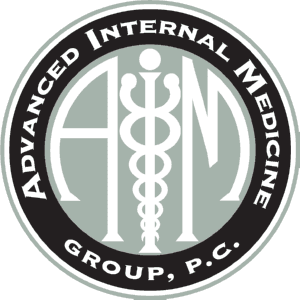Anemia is a common condition that affects millions of people worldwide, yet it often goes undiagnosed. It occurs when you don’t have enough red blood cells to carry adequate oxygen to your body’s tissues. Anemia can have various causes, ranging from nutritional deficiencies to chronic diseases. Understanding the signs and symptoms is crucial for early detection and treatment. In this blog from AIM Group in New York, we’ll explore the key indicators of anemia, the importance of a healthy lifestyle in prevention, and when to seek medical advice.
Understanding Anemia
Before diving into the symptoms, it’s essential to understand what anemia is. There are different types of anemia, but iron deficiency anemia is the most common. Others include vitamin B12 deficiency anemia, folic acid deficiency anemia, and anemia caused by chronic diseases or genetic conditions such as sickle cell anemia or thalassemia.
Common Symptoms Of Anemia
Anemia can present itself in various ways. Here are some common signs to look out for:
1. Fatigue and Weakness: Feeling unusually tired or weak is one of the most common symptoms. Since your body isn’t getting enough oxygen, everyday activities can leave you feeling exhausted.
2. Pale or Yellowish Skin: A noticeable change in your skin tone, such as paleness or a yellowish tint, can indicate a decrease in red blood cells.
3. Shortness of Breath: Experiencing shortness of breath during regular activities, or even at rest, can be a sign of anemia. This happens because your body is trying to get more oxygen by increasing your breathing rate.
4. Dizziness or Lightheadedness: Anemia can cause you to feel dizzy or lightheaded, particularly when standing up quickly. This occurs due to reduced oxygen supply to the brain.
5. Cold Hands and Feet: Poor circulation caused by anemia can lead to feeling cold, especially in your extremities.
6. Headaches: Frequent headaches might also be a symptom, as a reduced oxygen supply to the brain can cause pain.
7. Irregular Heartbeats: Known as arrhythmia, irregular heartbeats can occur because the heart has to pump harder to move oxygen-rich blood through your body.
8. Chest Pain: In severe cases, anemia can lead to chest pain, which is a serious symptom requiring immediate medical attention.
Risk Factors For Anemia
Several factors can increase your risk of developing anemia, including:
- Poor Diet: Diets low in iron, vitamin B12, or folate can lead to anemia. Vegetarian or vegan diets can also increase risk if not properly managed.
- Chronic Conditions: Diseases such as cancer, kidney disease, diabetes, and inflammatory bowel disease can interfere with red blood cell production.
- Family History: Some forms of anemia, such as sickle cell anemia, are inherited.
- Menstruation and Pregnancy: Women who menstruate heavily or are pregnant may have increased risk due to higher iron demands.
Promoting Healthy Habits
Prevention and management of anemia often involve making healthy lifestyle choices. Here are some tips:
1. Eat a Balanced Diet: Ensure your diet includes plenty of iron-rich foods like lean meats, beans, lentils, and fortified cereals. Don’t forget sources of vitamin C, which helps with iron absorption, and foods rich in vitamin B12 and folic acid.
2. Stay Hydrated: Drinking plenty of water aids in the proper functioning of your body, including the production of red blood cells.
3. Regular Exercise: Moderate exercise can help improve your overall health and circulation. However, if you have anemia, consult your doctor before starting any new exercise regimen.
4. Avoid Smoking: Smoking can interfere with the absorption of nutrients and overall blood health.
5. Routine Check-ups: Regular medical check-ups can help detect anemia early, especially if you have risk factors or are experiencing symptoms.
When To Seek Medical Advice
If you recognize any symptoms of anemia in yourself or a loved one, it’s important to seek medical advice. Early diagnosis and treatment can prevent complications and improve quality of life. Your doctor may perform blood tests to determine if you have anemia and identify the underlying cause. Treatment may include dietary changes, supplements, or addressing any underlying conditions.
Anemia is a condition that can significantly impact your life if left untreated, but it is manageable with proper care and attention. Recognizing the signs and making healthy lifestyle choices can go a long way in preventing and managing anemia. Always consult with a healthcare professional if you suspect you have anemia or are experiencing any concerning symptoms. Taking proactive steps today can ensure a healthier tomorrow.
AIM Group Offers Primary Care & House Calls In East Hills, NY
At Advanced Internal Medical Group in East Hills, NY we have 40 years of experience providing care with over 20 services in primary care, house call appointments, and more. To learn more about any of our services, call 516-352-8100 to speak with one of our team members.

